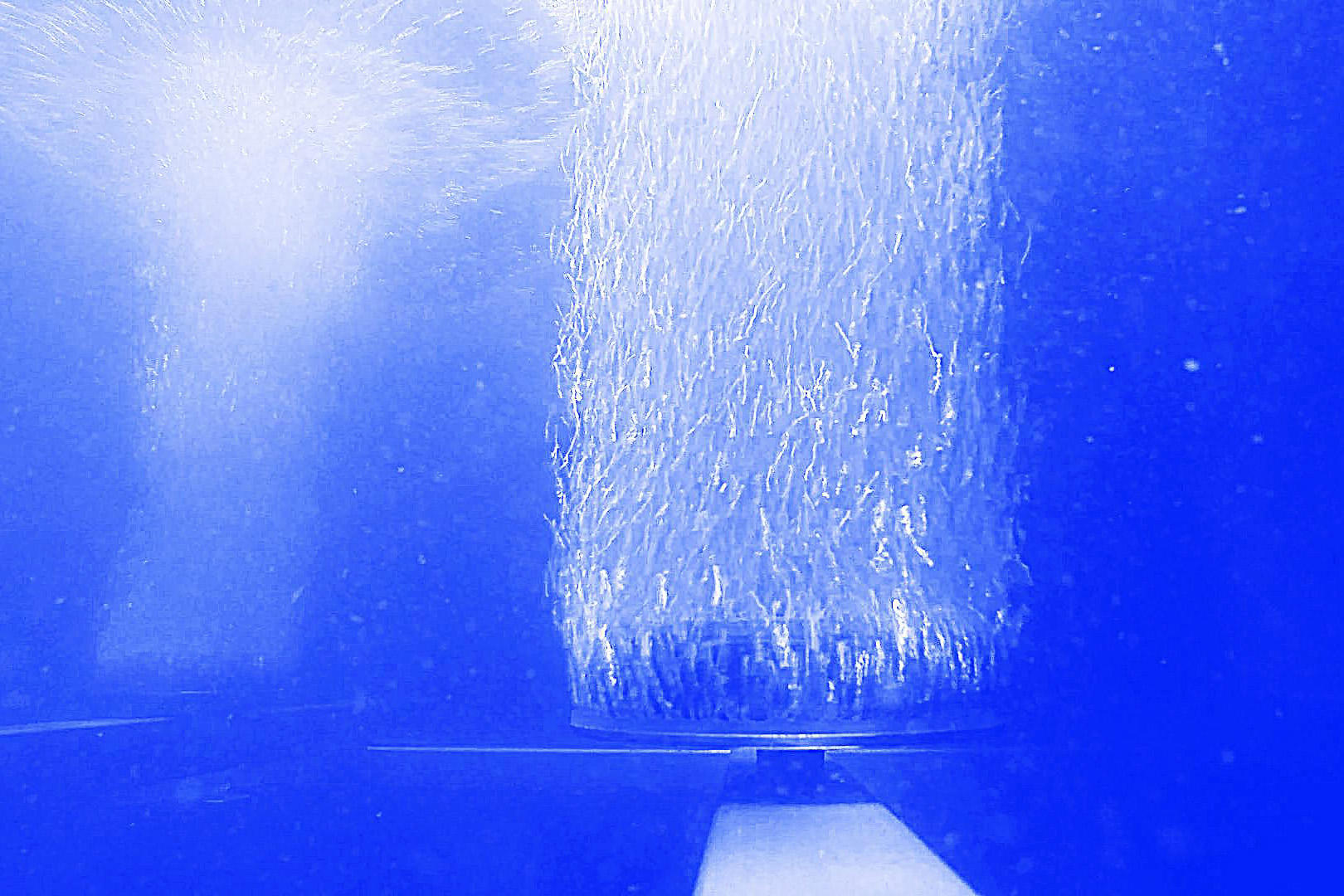
More rare earth metals detected at Swiss wastewater plants

Rare earth metals like cerium and gadolinium, which are used in industry and hospitals, are increasingly being detected at Swiss wastewater plants, new research shows.
For the first time scientists from the Swiss Federal Institute of Aquatic Science and Technology (Eawag) carried out investigations into the presence of rare earth metals in sewage at 63 treatment plants across the country.
The research team concludedExternal link:“rare earth metals are not used on a large scale, but come from highly-specialised applications in industry.”
The highest concentrations were for cerium, which is often used as an abrasive material by industry. The team estimates that over four tonnes of cerium end up in wastewater treatment plants every year, half of which comes from industrial applications.
The majority (95%) remains in the sewage sludge, but the remainder manages to get into the environment.
“Elevated cerium concentrations will be found in lakes, rivers and groundwater in the near future,” the scientists said in a statement published on Thursday.
The rare earth metal gadolinium was also found in high concentrations at the Ramsen wastewater plant near Lake Constance on the Swiss-German border. Gadolinium is used in alloys for making magnets, electronic components and data storage disks. Its compounds are useful in magnetic resonance imaging (MRI).
The Ramsen plant treats wastewater from the town of Singen in Germany, where a cancer centre with MRI facilities is located, Eawag said. The region is also a base for industries that produce large quantities of gadolinium-based agents.
“Appropriate measures to reduce the input of industrial gadolinium into wastewater by industry have already been taken and will lead to a significant reduction in the gadolinium load,” Eawag said.
Finally, high concentrations of lanthanum were detected in sewage sludge at all Swiss treatment plants investigated.
The teams believe that biological processes could be responsible for the high levels of lanthanum in sewage sludge but the use of lanthanum-enriched fertilisers in agriculture may also be a factor. Further research is planned.
Rare earth metals are not mined in Switzerland. According to EawagExternal link, the ecotoxicological properties of these metals and their potential impacts when released into the environment are little known.
Study author Ralf Kägi told swissinfo.ch that the current concentrations of the rare earth metals found at Swiss sewage plants were not harmful for humans or the environment.
“The value of our study is on the identification of individual hotspots which may even motivate the responsible industry to recycle their materials more efficiently,” he noted.

More
Stepping up wastewater treatment

In compliance with the JTI standards
More: SWI swissinfo.ch certified by the Journalism Trust Initiative

























You can find an overview of ongoing debates with our journalists here . Please join us!
If you want to start a conversation about a topic raised in this article or want to report factual errors, email us at english@swissinfo.ch.